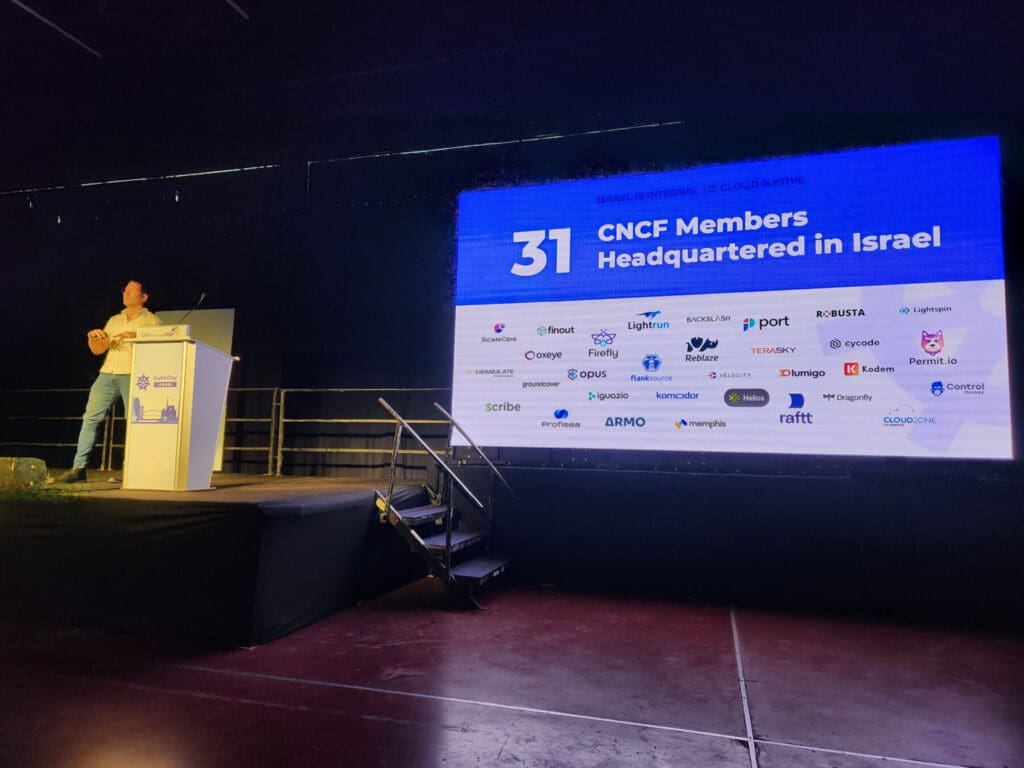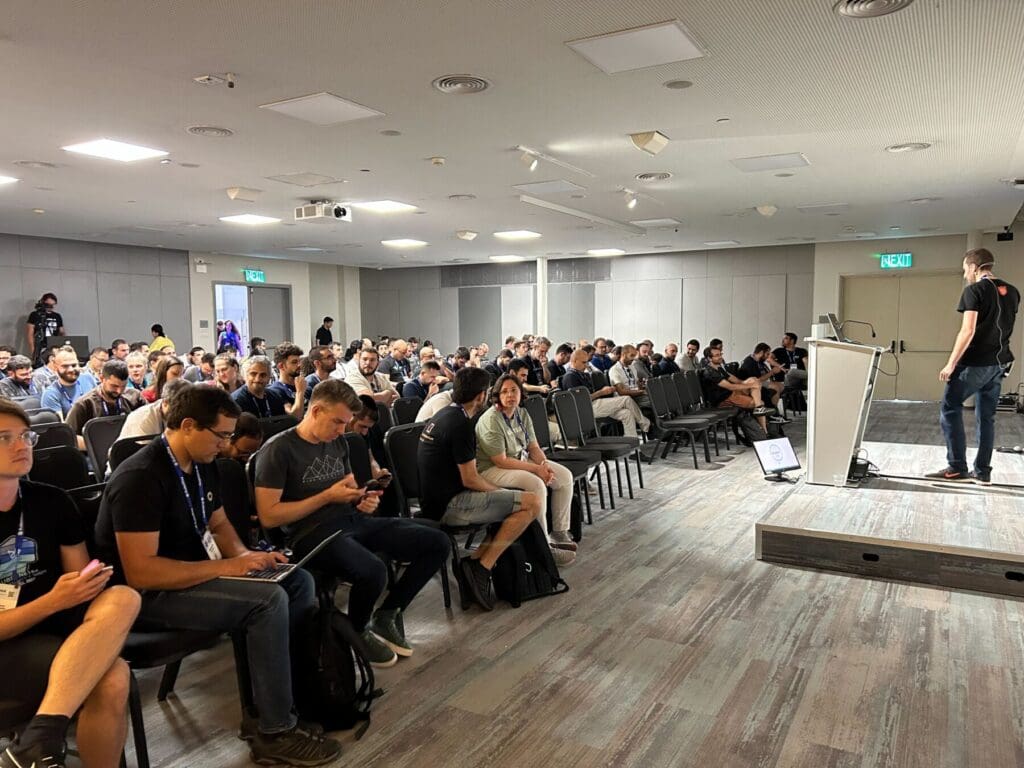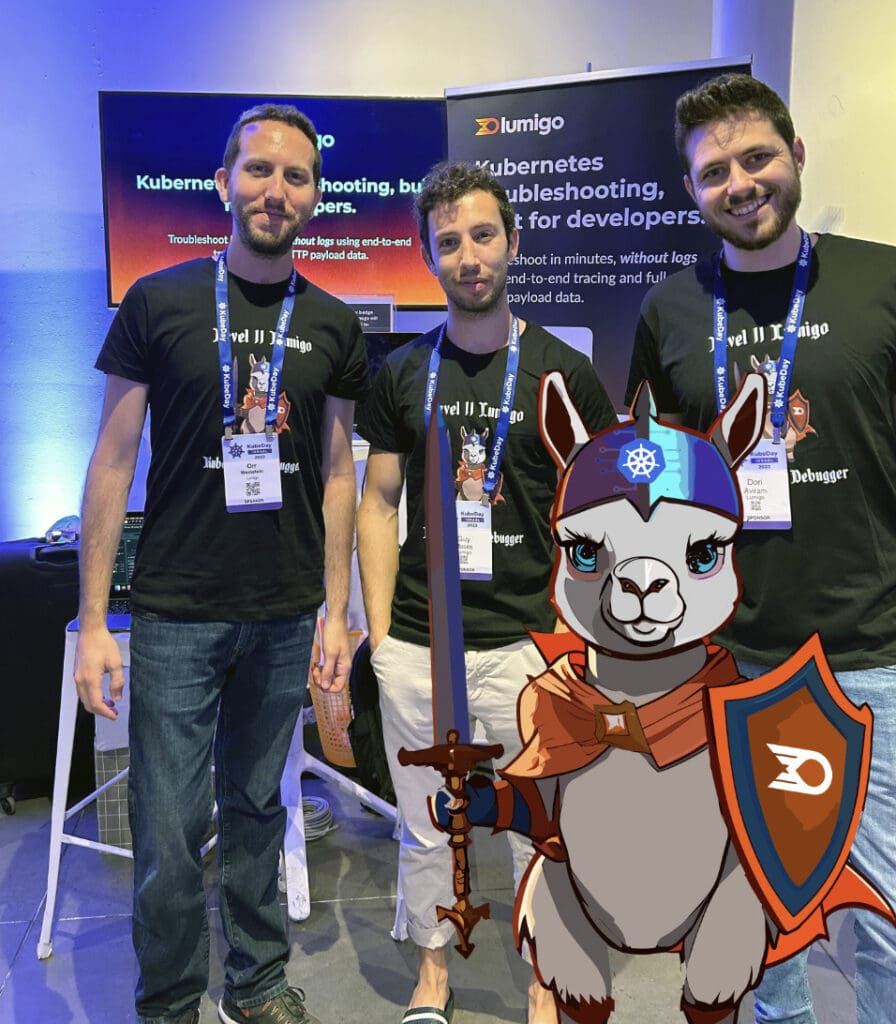Jun 21 2023

Israel’s tech scene, famously dubbed as the “Start-Up Nation”, hosted the highly anticipated KubeDay, a new, one-day event specifically dedicated to Kubernetes and cloud native computing. With an exciting line-up of industry-leading speakers, a plethora of interactive sessions, and unique opportunities to network, KubeDay Israel proved to be a memorable event.
KubeDay Israel, hosted by the Cloud Native Computing Foundation (CNCF), took place in Tel Aviv, one of the world’s foremost tech hubs. This event attracted Kubernetes enthusiasts and experts alike, from beginners wanting to learn more about Kubernetes, to seasoned developers looking to gain insights into the future of this game-changing technology.

Opening Highlights with insights on a thriving community
KubeDay buzzed with activity from dawn till dusk, providing a balanced mix of compelling talks, interactive workshops, and engaging hands-on sessions. The event was kicked off in style by none other than Chris Aniszczyk, the CTO of the Linux Foundation (CNCF). With an enthusiastic “Shalom,” Chris set the tone for a day full of learning and collaboration.
Chris seized the opportunity to highlight the global strength and reach of the CNCF community. More so, Chris specifically acknowledged the efforts and contributions made by the Israeli community. He lauded their role as the leading contributors to significant projects such as Kubescape, Curiefense, and cdk8s, acknowledging the impactful presence the Israeli community has made on the world stage.
Next, we had an absolutely hair-raising presentation from the dynamic duo, Batel Zohar and Mey Beisaron, titled “The Terrifying Migration of 420 Services to Kubernetes”. They led us through the spine-tingling journey of migrating an astounding 420 services to Kubernetes. The pair shared stories from the heart of this daunting task, unmasking the unexpected horrors that lurked in the shadows. The technical roadblocks, the sheer complexity of shifting a large application to K8s, the realities of what worked and the chilling revelations of what merely looked promising but turned out to be eerie dead-ends. The room was charged with anticipation as they delved deeper into the frightening labyrinth of their experience.
Anton Weiss and Arthur concluded the morning keynote sessions with a lively Rick and Morty-themed discussion about Backstage, an open platform for constructing developer portals. With the intention of enhancing the developer experience, their presentation addressed the typical hurdles when integrating Backstage on a larger scale. Their insights serve as a valuable roadmap for anyone who is looking to streamline workflows and maximize productivity within development teams.
Navigating the K8s Stack with Morning Sessions
After a series of enlightening keynotes, the event broke for some refreshments and the customary networking opportunities. At the Lumigo booth, we were bustling with activity. Attendees showed their support for ASSAF, our selected charity dedicated to aiding refugees and asylum seekers in Israel, by scanning their badges. For every badge scanned, Lumigo proudly donated 1 shekel to the good work that the ASSAF does.
In addition to our charitable efforts, we were thrilled to demonstrate our new Kubernetes Operator. Attendees had the opportunity to witness it in action, observing how it enhances Kubernetes workflows. Furthermore, we launched our new Kubernetes debugger t-shirts. These quickly became a hit, adding a fun and fashionable touch to the event while celebrating our passion for Kubernetes.
The morning sessions continued to captivate the attendees, serving up a variety of technical deep-dives and best practices. In Hall A3, Michael Kotelnikov from Red Hat showcased techniques to automate governance strategies for managing hundreds of Kubernetes clusters. Concurrently in Hall A2, Peter O’Neill from Styra explored the world of deploying Policy-as-Code, focusing on readable Rego policies and the Open Policy Agent.
As the morning rolled on, There was an eye-opening presentation on Kubernetes security vulnerabilities titled “Kubernetes Exposed: One Yaml Away from Disaster” which was presented by Assaf Morag and Michael Katchinskiy from Aqua Security. Then, the sessions concluded with an introduction to dynamic resource allocation by Freddy Rolland and Adrian Chiris from NVIDIA. The session-packed morning culminated in a much-needed lunch break at the Pavilion 10 Foyer, providing a moment for attendees to relax, reflect on the insightful presentations, and fuel up for the afternoon sessions.
Let’s talk about operators
If you were after a crash course on Kubernetes operators, Orr’s session after the lunch break was the place to be. He’s got a knack for making tricky stuff look easy. Orr’s chat about building Kubernetes operators was a masterclass in simplicity – he was all about getting stuff up and running with as few headaches as possible.

He didn’t just talk about any operator, though. He highlighted the Lumigo Kubernetes operator. Now, this little gem is like your best friend in the Kubernetes world. Install it and bam! It automatically starts tracing within your Kubernetes namespace. No fuss, no muss. But don’t take my word for it, Check out the docs to find out more.
Orr’s session was a great reminder of what we’re all about here – making Kubernetes easy to handle, without skimping on the cool stuff. It was all about taking the high-tech, sophisticated features and putting them into tools that anyone can use. And that’s a message we can all get behind.
An Afternoon Bursting with Kubernetes Insights
The much-needed coffee break at Pavilion 10 Foyer set the stage for an energetic afternoon of presentations and discussions. David Gerchikov from Aerospike took center stage in Hall A3, detailing his team’s solution to the Kubernetes Cluster Communication Challenge. Parallel to this, Eli Birger from PerfectScale delved into the realm of scaling, with his talk titled “Scaling Made Simple: Implementing Autoscaling for Optimal K8s Performance” in Hall A2, providing critical insights for those looking to optimize their Kubernetes setups.
As the day neared its end, Eliran Bivas from AppsFlyer took the attendees through a journey of simplifying multi-cluster Kubernetes management with Karmada, highlighting the ease-of-use and practicality of this tool. Over in Hall A2, a captivating session unfolded under the guidance of Hippie Hacker from ii Limited. His talk, “Cultivating Cultural Cooperation at the CNFC”, delved into the human aspects of tech communities and the importance of cooperation in such environments. With a day brimming with insights and powerful presentations behind them, attendees headed to the Pavilion 10 Foyer for the much-awaited evening networking reception, the perfect ending to an intellectually stimulating day.
Closing out another great community event
As the sun set on KubeDay Israel, attendees walked away with new insights, knowledge, and connections. The event showcased the vibrant Kubernetes community in Israel and proved once again why Kubernetes is an indispensable tool in today’s cloud-first world.
As lifelong students/learners/contributors of open source it’s essential to remember that our Kubernetes community thrives on collaboration and shared knowledge. Volunteering for events like KubeDay not only strengthens our community but also helps in charting the future course of this transformative technology.
Just lastly, we would like to extend our profound gratitude towards the organizers of KubeDay Israel, whose relentless efforts and vision brought this unforgettable event to life. The diverse speakers, brimming with wisdom and enthusiasm, transformed each session into an enlightening experience, offering valuable insights into the Kubernetes universe.



